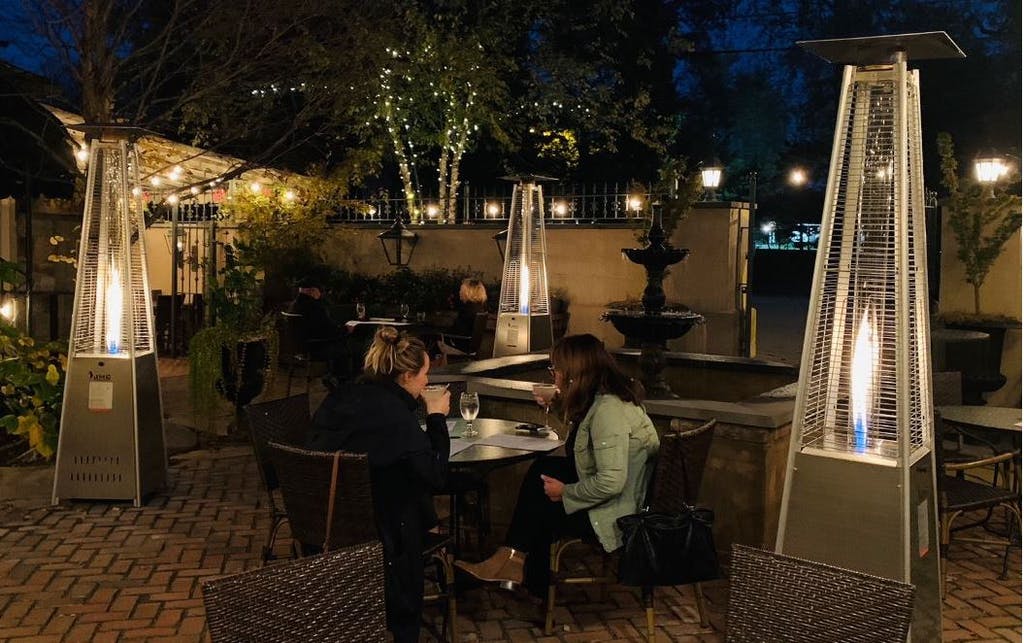
Diners take advantage of patio at Harry’s Savoy Grill before winter arrived.
House Bill No. 1, which would extend the sale of takeout alcohol as well as outdoor dining into 2022, unanimously sailed through the Delaware House Administration Committee Wednesday with no objections.
The bill, sponsored by Speaker of the House Pete Schwartzkopf, R-Rehoboth, extends the current bill for another year. It had been set to expire March 31, and if passed by the General Assembly would now expire in March 2022.
The bill has wide bipartisan support. Allowing takeout alchohol sales and outdoor dining was one way the state tried to help restaurants recover their footing during the COVID-19 pandemic.
“I’m looking forward to passing this legislation and extending a lifeline to bars and restaurants throughout Delaware,” Schwartzkopf said on his Facebook page.
Error, group does not exist! Check your syntax! (ID: 11)
The bill must be passed by the House and then the Senate before going to Gov. John Carney to sign into law.
Delaware Restaurant Association President and CEO Carrie Leishman said the bill being the first of this year’s bills to be considered was meaningful.
“It’s important to send that message,” said Leishman. It shows the legislature’s concern about Delaware restaurants, which continue to suffer with shutdowns. limits on inside dining and stay-at-home orders. she said.
Being able to sell takout alcohol and serve people outdoors “are both key tools in the tool box to help restaurants in this time of transition between closure and recovery,” she said.
Error, group does not exist! Check your syntax! (ID: 11)
The bill would do the same four things that last year’s HB349 did:
- (1) Allow a restaurant or bar that has a valid on-premise license to continue to alcoholic beverages as part of transactions for take-out, curbside or drive-through food service.
- (2) Allow a licensee to continue to use outdoor seating for serving of food and drinks.
- (3) Allow the state to temporarily suspend a license only if the commissioner has reasonable grounds to believe that public’s safety is at risk and there has been a violation of the law.
- (4) Allow the Commissioner to hold hearings by electronic, telephonic or remote means.
Delaware restaurants lost more than $1 billion in sales in 2020, Leishman said, with business down 20 percent by the end of the year.
Many have not been able to hire back about one-third of the workers they were forced to lay off in March 2020 when Carney shut down the state to stop COVID-19 spreading so quickly. The move put tens of thousands of restaurant workers out of a job overnight.
When the state did allow indoor dining, it asked restaurants to follow strict regulations that included limiting the number of people indoors and spreading tables out both indoors and out. Being able to serve fewer people translates to lower income.
Restaurants have been so badly hit that Delaware has offered them three rounds of grants to help pay expenses, Leishman pointed out.
Error, group does not exist! Check your syntax! (ID: 11)
Outdoor dining and take-out alcohol has proven popular with many diners. A Florida restaurant study said that 80 percent of the people surveyed liked it and wanted it to stay, Leishman said.


Betsy Price is a Wilmington freelance writer who has 40 years of experience.
Share this Post








